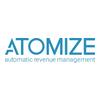The Hospitality Industry’s Digital Evolution - PMS and RMS: The Dynamic Duo Driving Hotel Success in a Digital World


The hospitality sector is evolving rapidly. The digital age has brought new challenges and opportunities for hoteliers, making it essential to adopt advanced systems to optimize operations and enhance guest experiences. Two critical components of a hotel’s technology ecosystem are the Property Management System (PMS) and the Revenue Management System (RMS). Together, they help hotels stay competitive and adapt to modern travelers' expectations, maximizing efficiency and profitability.
The Evolution of Hotel Technology
Over the past decade, hotel technology has advanced significantly. Traditionally, hotels relied on manual processes and disconnected systems for tasks like reservations, pricing, and guest services. This often led to inefficiencies, missed revenue opportunities, and a lack of pricing optimization. With today’s cloud-based solutions and AI-powered tools, however, PMS and RMS platforms have become not only more powerful but also user-friendly and accessible.
In the past, a standalone PMS could handle reservations and room assignments, while revenue management was often done manually or with basic tools. But with the rapid growth of online travel agencies (OTAs), increased global travel, and tech-savvy guests, hotels now require more integrated, sophisticated solutions. Modern PMS and RMS platforms are designed to work in tandem, enabling streamlined operations, optimal pricing, and an improved guest experience.
The Imperative for Integrated Technology in Hospitality
Guest expectations have evolved with the rise of mobile devices and on-demand services. Modern travelers now demand seamless, personalized experiences from booking to check-out. To meet these expectations, hotels must look beyond basic operational tools and consider technology as a critical enabler of exceptional guest experiences, operational efficiency, and revenue growth.
Hotels that rely on outdated systems and manual processes risk falling behind in today’s competitive market. Modernization is no longer optional; it’s essential. By using a modern cloud PMS alongside an RMS, hotels can unlock valuable data insights, personalize guest interactions, and make real-time decisions to capitalize on revenue opportunities.
The Power of Integrating a Modern Cloud PMS and RMS
While both a PMS and an RMS bring significant individual benefits, their integration creates a synergy that maximizes revenue optimization, operational efficiency, and guest satisfaction. Here’s how:
-
Maximized Revenue Optimization
When a cloud-based PMS and RMS work together, hotels can align dynamic pricing with real-time room availability. This integration enhances forecasting accuracy, provides more precise demand predictions, and ensures revenue opportunities are seized effectively. -
Unified Data
Integrating PMS and RMS ensures both systems operate from the same data source, eliminating manual reconciliation. This unified approach streamlines decision-making and allows teams to react faster to changes in demand, availability, and pricing trends. -
Enhanced Guest Experience
Automation in pricing and operational adjustments allows hotel staff to focus more on guest-facing activities, providing personalized and attentive service. This can lead to higher guest satisfaction and stronger brand loyalty. -
Increased Operational Efficiency
With the PMS handling day-to-day operations and the RMS focusing on revenue optimization, hotel staff can reduce their administrative workload, focusing instead on strategic tasks that add value to the guest experience. -
Scalability and Future-Proofing
A combined PMS and RMS solution allows hotels to scale easily, adapt to changing market conditions, and cater to evolving guest preferences. As hotels grow or pivot their offerings, an integrated solution ensures their technology stack remains robust and adaptable.
A New Vision for Hospitality
The integration of modern cloud-based PMS and RMS platforms reflects a forward-thinking approach to hospitality, where technology isn’t merely functional but central to creating memorable guest experiences. This shift underscores the role of technology in enabling seamless, personalized experiences that connect all guest touchpoints.
Hotels that embrace an integrated tech stack are better positioned to meet the demands of today’s guests and build a foundation for future growth. With data as a core asset, hotels can make informed decisions that drive revenue, enhance service, and foster brand loyalty. Furthermore, this shift calls for a cultural embrace of innovation within hotel teams. Hoteliers who see technology as a strategic asset will be well-equipped to adapt to the fast-paced changes in the industry.
Leading the Hospitality Industry into the Future
As hospitality continues to evolve, the blend of human interaction, personalized service, and advanced technology will define the guest journey. By adopting integrated PMS and RMS platforms, hoteliers unlock new possibilities for growth and deliver experiences that align with the expectations of modern travelers.
In conclusion, modernizing a hotel’s tech stack isn’t just about adopting new systems; it’s about reimagining the entire guest journey. By integrating platforms like Atomize RMS and Mews PMS, hotels can shape a future where seamless, personalized, and unforgettable guest experiences become the industry standard.
Want to learn more?
Join our webinar on November 14th to explore cutting-edge hotel technology and hear success stories from real clients.
